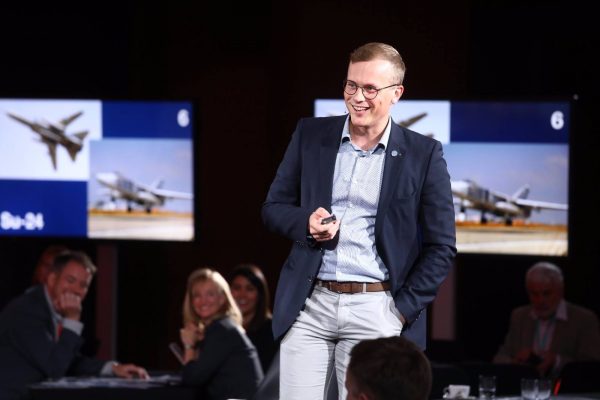
Lukas Andriukaitis
IIRPS VU Alumni, Political analyst
Lukas, you’ve received your BA degree in VU IIRPS, after that you’ve decided to study in Eastern European and Russian Studies program. How did you get interested in political science and region studies? How did you decide to study in VU IIRPS?
Indeed, I did. Straight after my BA studies I applied for the Eastern European and Russian Studies MA program. This was a very natural decision, as I was trying to find ways how to best prepare for a carreer in a security/defense sector. I saw the studies of the Eastern European region and especially Russia, as a good way merge my military and political science knowledge. I had considerations and other options for my MA studies abroad, but in the end I decided to choose VU IIRPS and match it with my service in the military. I was serving as an officer in one of the Lithuanian military units that the knowledge of the region, and especially of Russia, was highly valued. During my MA study years I once again appreciated the flexibility of VU IIRPS, not a lot of my colleagues abroad had the luxury of studying and working full-time during their MA studies.
As far as we know, you’ve had an internship in the USA. What experience and knowledge did you get there? Could you tell us more about this period of your life?
Yes, I recently got back from a Baltic American Freedom Foundation program which allowed me to stay and work in the USA for one year. I spent all of this time in Washington DC, working in one of the biggest and most influential think tanks in the US – the Atlantic Council. This year was truly an enriching experience, not only did I have the chance to travel all around the Western hemisphere, to learn the American work ethics, and most importantly to learn hard analytical skills. I was very lucky to get a position in the Digital Forensic Research Lab, a new project of Atlantic Council that deals with open source analysis. As this center works more as a start-up rather than an old-fashioned think tank, the team trained me exceptionally fast and after a few weeks I was a full member of the team. To be frank I was a bit skeptical before embarking on this trip, as I was not sure if I would learn any hard skills during this year. Nonetheless, I was introduced to the newly developing world of open source analysis and currently this is the main path of my carrier.
Your recent career is closely related to your studies. Could you tell us more about your work nowadays?
After coming back from the USA I continue to work in the sphere of disinformation, propaganda and open source analysis. Currently I am working as a contract based researcher for both Atlantic Council’s Digital Forensic Research Lab and the Lithuanian think tank – Vilnius Institute for Policy Analysis. I am also involved with many side projects concerning the same topics. What I most enjoy about working on a contract based agreement is not only that I am not restricted with a concrete office space, but also I have the ability to be in charge of your own time. My work week is no longer constrained by the office hours, but I also have the ability to do business trips and even ‘workcations’ when I need them. There is a lot of flexibility, as long as the job is done. This is comes very useful, as I am currently doing a lot of trainings and public speaking engagements around the region teaching the open source analysis skills to journalists, academics, policy-makers and military staff.
During your studies, you’ve not only studied but also you actively worked with VU Student Corporation RePublica and participated in the military training. Was it hard to plan your day? What experience did you gain from these activities?
Yes. Starting from the third year, atop of my studies, I was working full time as a senior specialist at the State Railway Inspectorate under the Ministry of Transport and Communication and serving in the Junior Officer’s Course. I was also active in the Young Conservative League and VU Student Corporation RePublica. Most of the time I ended up having a seven day work week and less night sleep than it is recommended, but I successfully managed to do all of it. I learned a lot during these years, starting from academic writing skills to leading a team, but the overarching, and probably the most valuable skill that I learned was the time management. And IIRPS helped me a lot to learn these skills. The first years in the university are intense and demanding, especially in IIRPS, but there is a reason behind all of it. IIRPS really does give you a lot of skills you will need later in your professional carrier, all you need to do is take them.
Could you give any advice to the soon-to-be students of IIRPS VU?
I guess I would recommend every student not to waste time too much while studying. Your workday does not have to start at 8 AM and end at 5 PM. Weekends are not only for resting, weekends are also for catching up what you were not able to do during the week. After first months in VU IIRPS you will find that there are a lot of talented people around you and if you want to succeed and be competitive, you need to walk that extra mile or sometimes two. Start gathering your professional experience while in studying as it will give you a much more options when you will start looking for a job. Internships, academic organizations, freelance writing, non-governmental sector, volunteer work, or learning a new language – all of these options could give you a head start in your future carrier.







